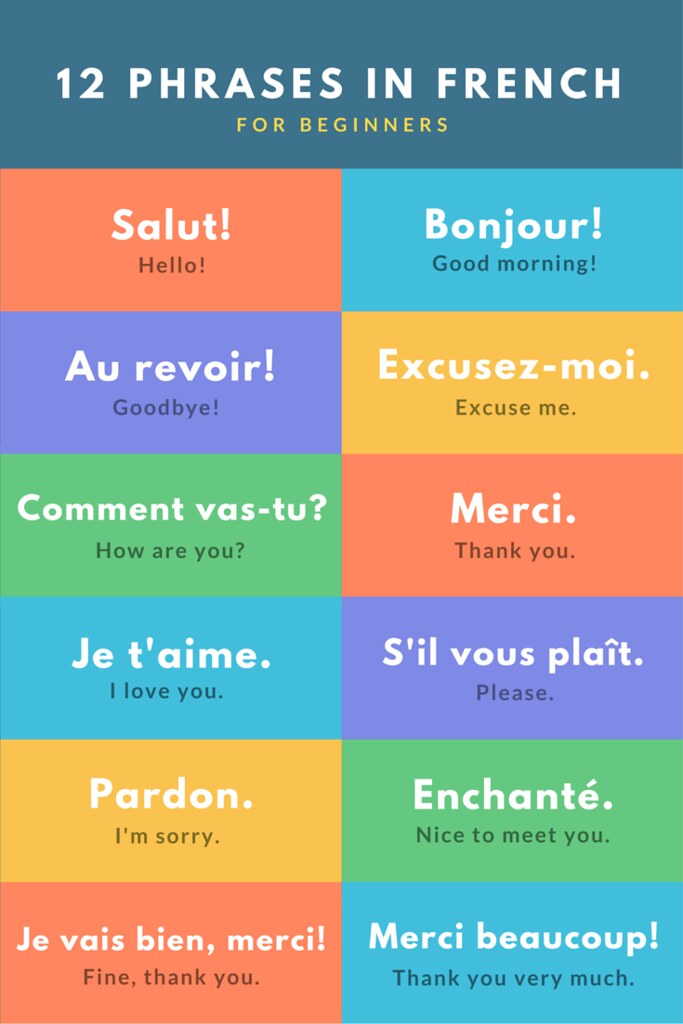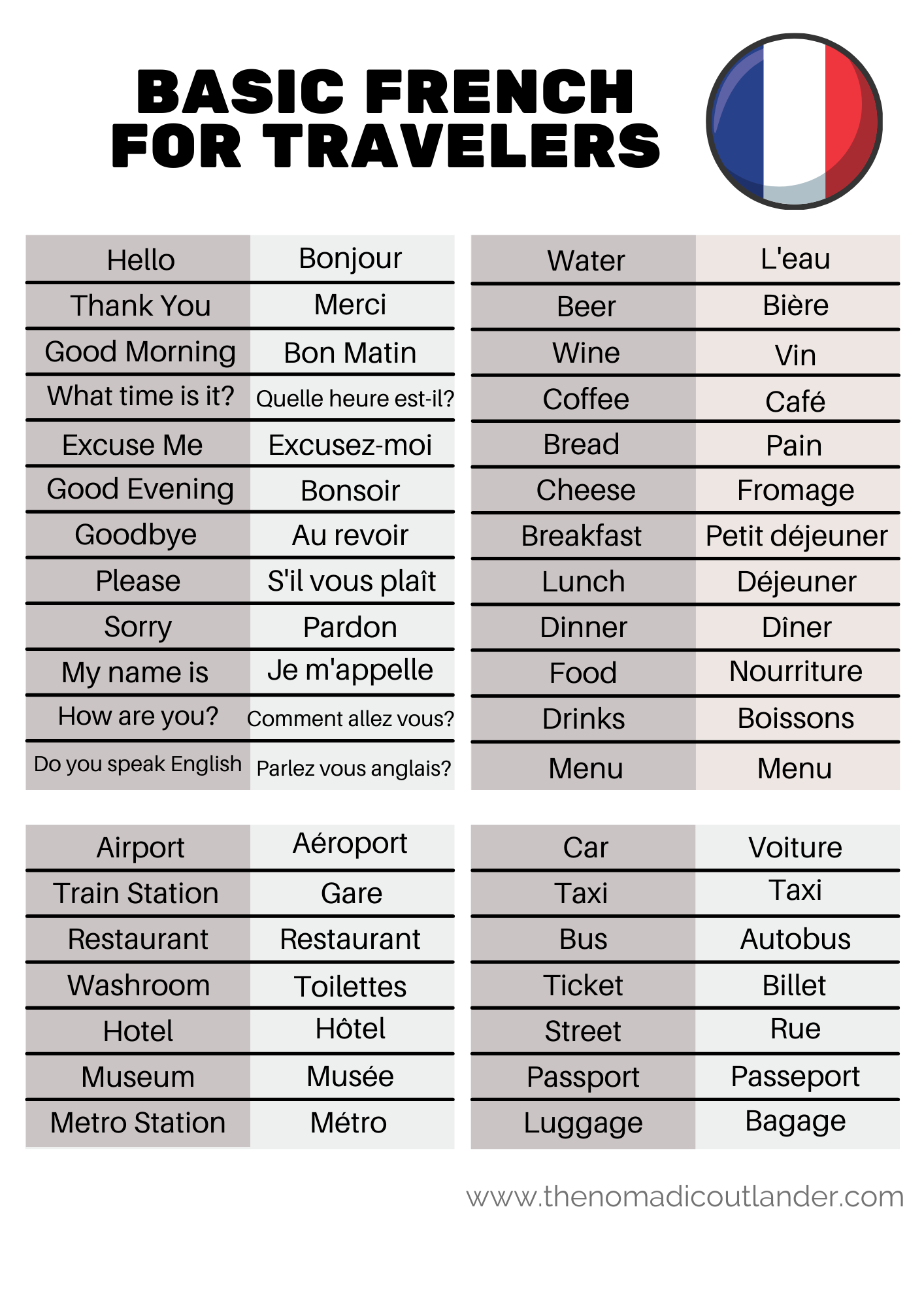The Importance of Basic French Phrases for Tourists
When planning a trip to France, one of the best ways to enhance your experience is by learning a few basic French phrases. Not only does it endear you to the locals, but it also significantly eases communication and makes your travel more enjoyable. I remember my first trip to Paris; I was nervous about speaking French, but once I tried, the smiles and encouragement I received from locals were heartwarming. Let’s dive into some handy phrases you’ll want to memorize!
Basic French Phrases for Everyday Use
Greetings and Pleasantries
Starting your conversations with greetings sets a friendly tone. Here are some essential phrases:
| English | French | Pronunciation |
|---|---|---|
| Hello | Bonjour | bohn-zhoor |
| Good evening | Bonsoir | bohn-swahr |
| Goodbye | Au revoir | oh ruh-vwahr |
| Please | S’il vous plaît | seel voo pleh |
| Thank you | Merci |
Travel Tip:
When greeting someone, it’s customary to say “Bonjour” when entering shops or restaurants. It shows respect for the culture!
Common Questions to Ask
Getting Help and Directions
Asking for help is essential during your travels. Here are a few phrases that will come in handy:
| English | French | Pronunciation |
|---|---|---|
| Where is…? | Où est… ? | oo eh |
| How do I get to…? | Comment aller à… ? | coh-mohn ah-lay ah |
| Excuse me, can you help me? | Excusez-moi, pouvez-vous m’aider? | ehk-skew-zay mwah, poo-vay voo meh-day |
| What time is it? | Quelle heure est-il? | kel uhr eh teel |
Personal Experience:
While wandering through the charming streets of Montmartre, I got lost and used “Où est la station de métro?” (Where is the metro station?) to ask a friendly local. They not only directed me but also told me about some hidden gems nearby!

Dining Etiquette and Food-Related Phrases
At the Restaurant
France is known for its culinary delights, so knowing how to order food will enhance your experience. Here are some useful phrases:
| English | French | Pronunciation |
|---|---|---|
| I would like… | Je voudrais… | zhuh voo-dray |
| May I have the menu, please? | Pouvez-vous me donner le menu, s’il vous plaît? | poo-vay voo meh doh-nay luh meh-noo, seel voo pleh |
| Can I get the check? | Puis-je avoir l’addition? | pwee-zh ah-vwahr lah-dee-syon |
| I am vegetarian | Je suis végétarien(ne) | zhuh swee vay-zhay-tar-yan(ne) |
Travel Tip:
When dining in France, it’s customary to say “Bon appétit!” before starting your meal, signifying enjoyment of your food.

Shopping and Bargaining
Useful Phrases at the Market
Shopping in French markets can be delightful, especially if you can communicate effectively. Here’s what to say:
| English | French | Pronunciation |
|---|---|---|
| How much is this? | C’est combien? | say kohm-byen |
| Can you lower the price? | Pouvez-vous baisser le prix? | poo-vay voo beh-say luh pree |
| I am just looking. | Je regarde seulement. | zhuh ruh-gard seuhl-mahn |
| Do you accept credit cards? | Acceptez-vous les cartes de crédit? | ahk-sep-tay voo lay kart deh kray-dee |
Transportation Vocabulary
Getting Around
Knowing how to navigate public transport is crucial for a smooth travel experience. Use these phrases while commuting:
| English | French | Pronunciation |
|---|---|---|
| Where can I buy a ticket? | Où puis-je acheter un billet? | oo pwee-zh ah-shtay uhn bee-yay |
| Which platform is it? | Quel quai est-ce? | kel keh eh |
| Is this train going to…? | Ce train va à…? | se tran vah ah |
| What time does it arrive? | À quelle heure arrive-t-il? | ah kel uhr ah-rev teel |

Personal Experience:
Once in Lyon, I confidently asked, “Où puis-je acheter un billet?” and received a friendly smile and clear directions to the ticket counter. It truly made my day!
Exploring Cultural Sites
Visiting Museums and Attractions
When visiting France, you’ll likely explore numerous cultural sites. Here are phrases that will enhance your visits:
| English | French | Pronunciation |
|---|---|---|
| Is there a guided tour? | Y a-t-il une visite guidée? | ee ah teel oon vee-zit gee-day |
| Where can I buy tickets? | Où puis-je acheter des billets? | oo pwee-zh ah-shtay day bee-yay |
| What is the opening hour? | Quelle est l’heure d’ouverture? | kel eh leuhr doo-vehr-tuhr |
| Can I take photos here? | Puis-je prendre des photos ici? | pwee-zh prahndr day fo-toh ee-see |

Pros and Cons of Learning Basic French Phrases
Why You Should Learn
- Enhances Communication: Engaging with locals creates a more authentic experience.
- Respect for Culture: Speaking their language shows appreciation for French culture.
- Improves Confidence: Mastering even basic phrases boosts your confidence in navigating new surroundings.
Challenges to Consider
- Pronunciation Difficulties: French pronunciation can be challenging for English speakers.
- Contextual Use: Some phrases may vary in formality and usage.
- Regional Dialects: Different regions may have variations in expression.

FAQs About Basic French Phrases
What are the most important phrases to learn for travel in France?
The most important phrases include greetings, how to ask for help, ordering food, and asking for directions.
Can I get by speaking English in France?
While many people in tourist areas speak English, knowing basic French phrases will enhance your interactions and help you navigate better.

What is the best way to learn French phrases quickly?
Utilizing language apps, practicing with native speakers, and immersing yourself in the culture are effective ways to learn quickly.
Are there language learning tips for traveling to France?
Focus on pronunciation, practice speaking with locals, and don’t be afraid to make mistakes. The effort is often appreciated!

Conclusion: Embrace the Language, Embrace the Culture
Learning basic French phrases is not just about words; it’s about immersing yourself in the French culture and community. My travels have shown me that even a small effort to speak the language creates memorable connections with people and enhances the overall experience.
So as you plan your trip to France, remember these phrases, practice them, and enjoy the richness of the French language. Bon voyage!